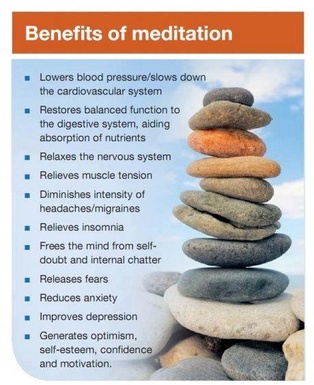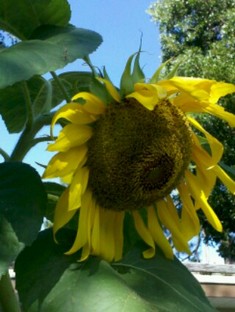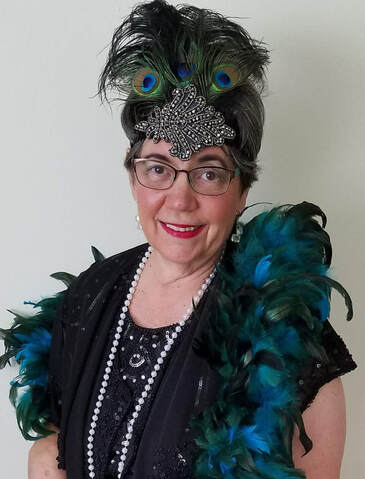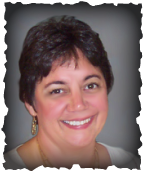|
10/6/2021 Music is a miraculous giftMUSIC IS A MIRACLE FOR ALZHEIMER'S PATIENTS (AND THEIR CAREGIVERS)
In my experience as a singer working specifically with residents in memory care, I have repeatedly seen an almost miraculous "awakening" that occurs when carefully chosen music is sung live with the people who have memory deficits from Alzheimer's or other cognitive decline. It is still, after witnessing it time after time for the past 7+ years, so incredibly moving. I have seen people who are wheelchair-bound and basically unresponsive, lift their head up, open their eyes and begin singing with me. Often staff and family also react to this "awakening" as miraculous, when they see the person still inside and able to respond, sometimes even when they don't know their own name or recognize family anymore. It's a gift of connection that is so precious and amazing! This very powerful aspect of music triggers memories stored in a different part of the brain, usually the last affected. And when it can be activated, the positive effects last for a while, bringing joy to both the individual and their caregiver/family. There are also some excellent programs (MusicandMemory.org) which use the same concept but with technology instead of a live singer. That also has merit and proven benefit to the listener, however, in seeing responses to both live and recorded music, the hands-down best is the live performance because of the vital human connection and interaction with the singer. And, of course, a singer can custom design programs for specific groups or individuals and be responsive to changing them upon getting feedback as to which songs are best received. There is also the aspect of giving eye contact, a warm smile, a touch on the arm, and the energy of the song. When you take into account that most people living in memory care have a full 95% of their time idle, aside from activities of daily living, having a musical "intervention" be it live or through technology can increase connection, quality of life and joy for those living with Alzheimer's Disease or other dementia. For those caring for a loved one at home, music can provide a welcome stimulation and connection via watching favorite musicals on video or streamed, and through the use of a device which can create a custom playlist, such as iTunes or YouTube Music, Amazon Music, etc. The creation of a highly personalized list of favorite songs is essential. Finding just the ones that produce the greatest "happiness effect" and bring pleasant memories back is the goal. Also, if you can add stimulation for other senses, such as photos for visual memory stimulation, and objects for tactile interest -- jewelry, memento from a trip, any other object that has happy memories attached, the effect is multiplied. I highly encourage caregivers, both family and professional, to explore the amazing possibilities and power of music and memory! 9/20/2021 0 Comments Music and memoryI recently came across this very informative video by Dr. Oliver Sacks, a leading expert in the fields of music and neurology. He explains very succinctly how beneficial music is for people with cognitive decline and memory loss, such as for Alzheimer's patients. I have seen this borne out time and again using in-person singing for those in Memory Care. It's truly astounding that some can be reached through music, even though they have lost language skills and most of their autobiographical memory. Check it out. 7/23/2014 Music brings you "Alive Inside" I have written much on this site about the power of music to unlock the memories of those with dementia, about my own experiences using live music with Alzheimer's patients and how music can improve the quality of life for the elderly (and their caregivers!). Refer to the iPod Project and Music and Memory posts on this site. Now, the long-awaited release of the documentary film about this exciting subject is happening across the country. I hope you have the opportunity to see the film in theaters, but if not, it will be available in October on DVD. If you are a caregiver for someone who might benefit from the inclusion of personalized music, please visit the website www.musicandmemory.org for information about setting up an iPod or other MP3 player with music for your care recipient. You could make an incredible difference in their life and your own with this simple action. Take a look at the video trailer below and consider how good it would feel to bring one you love "alive inside" again with music! Dr. Bill Thomas, creator of the Eden Alternative and ChangingAging.org website, blogs about his part in the Alive Inside documentary. You'll find his article in the DailyBeast Op-Ed: Treat Dementia With Music, Not Drugs is excellent. Here is the trailer for the Alive Inside documentary (winner of the Audience Award at 2014 Sundance Festival): or visit the website for times and dates of showings at www.aliveinside.us  I have written often of the benefits of meditation, particularly when combined with music as a guided meditation experience. Now there is increasing evidence from mainstream medical research of what has been understood for thousands of years by wise teachers of many traditions: meditation is great for people! The truly excellent thing about meditation is that anyone can do it, pretty much anywhere. It is easy, free (or very inexpensive if you choose to buy CDs or download guided versions), is proven as effective as pharmaceutical aids in reducing depression and stress, and has no side effects other than an increased sense of well-being and peacefulness. Click here to see the research done at Johns Hopkins investigating meditation as anti-depressant. What's not to love about that? The Mayo Clinic also published a newsletter article titled "Meditation: A simple, fast way to reduce stress" which gives an great overview of the subject . Various forms of meditation have been taught, mostly in eastern cultures, and the practice has been growing by leaps and bounds in the west over the past thirty years or so. There have been a number of pioneeers in bringing the practice of mindfulness-based stress reduction (MSBR) to the west, including Jon Kabat-Zinn who founded the Stress Reduction Clinic and Center for Mindfulness in Medicine, Health Care, and Society at the University of Massachusetts Medical School. His clinic was featured on the public television series Healing and the Mind with Bill Moyers in 1993. Meditation has such incredible benefits that I believe everyone can find some help by practicing it. In my own experience as a caregiver, meditation and music, combined with fervent and frequent prayer, saved my sanity when it was hanging by a thread. I find it compelling that the list of benefits meditation offers so exactly corresponds to symptoms many (or most) caregivers experience. The only mystery to me is why more caregivers don't use this incredible tool for balance and strength. Which is why I am making it my mission to get this information out to those who need it through this website & blog, by writing, speaking, teaching, and otherwise promoting it. How often is there a perfect solution to so many of our everyday stresses just waiting for us to sit down and get quiet long enough to find its gifts? If you'd like to explore the ideas and resources for meditation, please visit my Meditation and Music page on this site and also take a look at the ideas for Self-care and Caregiver Resource Store. I will also be publishing a book which further details resources and tools for caregivers: Sanity Savers for Caregivers at the End of Their Rope. You can add your name for an announcement of publication, which is targeted for March 2014. If you would like to read a chapter from the book about the uses of music and meditation, click here. I encourage you to explore the idea of various forms of meditation and find what appeals to you personally. In my 17 years of caregiving, music and meditation were the brightest jewels in the caregiver crown. Try it out. You have nothing to lose and so very much to gain! "There are four kinds of people in this world: those who have been caregivers, those who currently are caregivers, those who will be caregivers, and those who will need caregivers."  No matter which of the above four categories outlined by former First Lady Rosalynn Carter you may fall into, there is little doubt that your life has been affected by Alzheimer's -- either through a family member, friend or spouse. I won't bombard you with statistics, since they are all over the media airwaves, thankfully so! But I want to point out the there are over 65 million family caregivers in the US alone, mostly women, struggling along as the unsung heroes or sheroes, as the case may be, who deal with this disease or others, daily. I want to let you know that they need your help. Yes, I'm talking to YOU! This is not a disease which will allow cheering from the sidelines. You're going to have to get down and dirty, and maybe take a few hard knocks for the team and almost definitely get out of your comfort zone. If you know anyone who is dealing with Alzheimer's, for heaven's sake, help them out! Here are some things you can do: 1. Give them a huge hug and a warm, sincere "thank you" for their love and care. Let them know you acknowledge how tough it can be. It will make both of you feel better. 2. Offer practical help: a couple hours of respite care so they can go to a movie or shopping or take a nap. Do their laundry at your house and deliver it clean and folded. Take their children out for an afternoon of fun at the park or zoo to give those "sandwiched" between elder care and child care a break on one end of the caregiving spectrum. Find information about resources available in your local area for support, respite, help and give them to the caregiver with encouragement to help them follow through. 3. Take a walk to end Alzheimer's on Saturday, October 19, when the Alzheimer's Association is sponsoring a national fund-raising event. Click on the Alzheimer's Association link above to sign up. Get your company involved in matching donations raised (if you work for a company so inclined). 4. Help start a Memory Cafe in your community. Here's a "Toolkit" guide for this very worthwhile project and more information about how successful they are and how easy it is to bring better quality of life to those with dementia. There are currently about 80 Memory Cafes around the US, mostly grassroots local efforts, and so very helpful to caregivers and those with dementia. The concept is really taking off in the UK, with excellent support from the government. Here, unfortunately, we have to do it ourselves. 5. Be an advocate for creating dementia-friendly communities, so that caregivers can take their loved ones out to a restaurant, shop, church, or other public event without feeling the terrible stigma that tends to pervade uninformed environments. It isn't that people aren't willing to be dementia-friendly. They simply don't know how. Educate yourself, then educate others. See the excellent resource "Aging, Dementia, and the Faith Community: Continuing the Journey of Friendship" by John T. McFadden, M.Div., Chaplain at Appleton Health Care Center in Appleton, WI) 6. Practice the Mosquito Principle: "If you think you're too small to be effective, you have never been in bed with a mosquito." So, go ahead and be annoying to the decision-makers who can help to fund the end of Alzheimer's. Bother everyone you can think of and be very persistent in your efforts to help caregivers at the end of their rope, dealing with Alzheimer's. You CAN make a difference. Practice being mosquito-like. It can actually be fun, once you get the buzz, er, whine of it! 7. Introduce folks to this website which has a depth of resources, links, tips, advice and sanity-saving humor to help caregivers maintain their own well-being. There are helpful ideas about using music, meditation, aromatherapy, self-care, inspiring books, personalized playlists on iPods with www.musicandmemory.org, and so much more at www.caregiverwellness.biz. 8. Lastly, practice outrageous acts of kindness and caring for the people you love, and maybe for strangers, too. Use the Pay it Forward concept. Reach out and offer your support in big and small ways. Be vocal, be an activist, be a pain in the patooti, but be involved. If we are not, who will be? |
About Karen
Karen is a compassionate, enthusiastic student of life, who cared for her mother for 17 years. She brings her insights, compassion, experience and desire to share knowledge and healing to this ongoing conversation with others on the caregiving path. If you are caring for a parent, spouse, friend or other loved one this site offers sanity-saving tips, open-hearted self-care ideas, and an open forum for discussion, connection and sharing resources for the journey. Archives
October 2021
CategoriesAll Acceptance Aging Together Alan Cohen Alive Inside Movie Alzheimer's Alzheimer's Prevention A Mind Of Your Own Anxiety Aromatherapy Audio Therapy For PTSD Austin Air Hepa Filter Autism Back Care Video Beginner's Mind Being Present Blessing For Caregivers Books Brain Insulin Butterfly Story Calm Calm.com App Care For Veterans Caregiver Advocate Caregiver Coalition Caregiver Comfort Kit Caregiver Guilt Caregiver Retreat Caregiver's Serenity Prayer Caregiver Stress Caregiver Support Care Giving Caregiving Vulnerability Care In Hospital Caterpillar Into Butterflies Chamomile Tea Cindy Laverty Comedian Computers & Exercise Crisis Dan Cohen Deepak Chopra Delirium Depression Diabetes Disaster Preparedness Distractions Dr. Dharma Singh Khalsa Dr. Oliver Sacks Eden Alternative Eldershire Elizabeth Dole Foundation Emergency Planning Emergency Preparation Emerson End Of Caregiving Enough Already Escapism Essential Oils Food Safety Forgiveness Funny Stories Gaiam.com Gail Sheehy Gift Of Alzheimer Gift Of Healing Presence GMO Food Green House Project Gregory Fricchione Md Grief Guilt Happy Light Healing Holding Hands Home As Sanctuary Hope Hospital Caregiving Hospital Stay Humor Inspirational Reading Ipods For Nursing Homes Isolation Jacksonville James E. Miller John Denver Johns Hopkins Study John T. McFadden Jon Kabat-Zinn Kelly Brogan Kirtan Kriya Meditation Lao Tzu Laugh Laughter Lavender Loneliness Loss Of Purpose Love Love In The Nursing Home Maya Angelou Mayo Clinic Mayo Clinic Alzheimer's Blog MD Meditation Meditation Garden Melatonin Memory Memory Cafe Military Caregiver Mindfulness Meditation Mr. Bean Music Music & Alzheimer Music And Memory Neurological Research Noise Pollution Operation Family Caregiver Opportunity Overnight Respite Care Pandemic Passages In Caregiving Patience Paul Coelho Peace Post-traumatic Stress Disorder Power Of Love Prayer PTSD Quality Of Sleep Radical Contentment Relaxation Releasing Problems Renewal Research Respite Rewind Rodney Yee Rosalynn Carter Rosalynn Carter Institute For Caregiving Rowan Atkinson Sanctuary Sanity Self Care Serenity Silence Sleep Slowing Time Solutions Soothing Music Stress Stress Relief Sun Sunshine Support For Caregivers Tai Chi Thanksgiving The Care Company The Kiss Time Traumatic Brain Injury Travel With Alzheimer's Person Treat VA Caregivers Valentine's Day Verilux Veteran Farms Veterans Veteran Suicide Vitamin D Wayne W. Dyer Wellness Wendell Berry White Noise William H. Thomas Worry Yoga Yoga Video |


